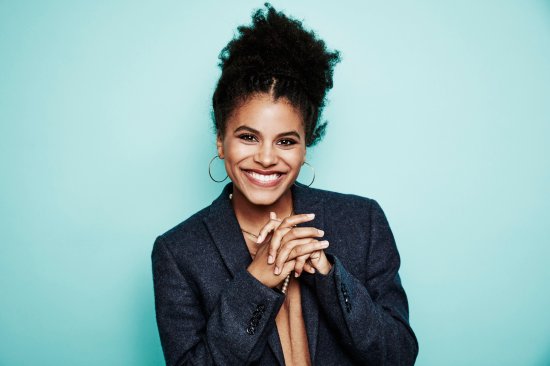
Last fall she became one to watch thanks to her role on the hit FX show 'Atlanta.' Now, as the series gears up for season 2, Zazie Beetz shares why she thinks true power lies in embracing individuality.
Home New York City
Age 25
How you know her The only female lead in Atlanta, Beetz plays the on-again off-again girlfriend of Donald Glover’s character, Earn.
What’s next Atlanta’s second season premieres in the spring.
You hold your own acting against Donald Glover, who created Atlanta. What’s it like to work with him? I find him to be a very comforting presence. He’s super-grounded and so supportive.
What do you want viewers to get out of the show? It portrays four very different people, who happen to be black, living day-to-day. And I think you can’t just group them together. Even though they all grew up in the same city, there’s a spectrum of experience, class, thought, and values. I like representing different kinds of black people—showing they exist.
[time-brightcove not-tgx=”true”]
Your character, Vanessa, has been lauded for her realness. How do you connect with her? To see Van and think “she’s just an angry woman who’s annoyed with this man” takes her character out of context. Really, she has no other options. She has no fallback, and that’s really stressful and difficult. In tiny ways I can relate to that, but I’m probably more naïve than her and less jaded. I think that she’s been through a lot more.
Fans of the show have commented a lot online about her look—have people brought that up with you? Definitely. Her hair has become very popular, which is great. For me, a big thing growing up was naturalness—both in being and appearance. My mom never let me relax my natural hair. For so long I thought I was ugly, and I still sometimes struggle with that. But now I’ve come to feel like this is me.
Atlanta is being called very progressive for showing a fresh perspective. Where do you think we are in terms of representation in popular culture? We can push further. The truth is all kinds of people exist everywhere. So let’s tell their stories too. Even though all this dialogue is going on, I sometimes feel a little bit reduced to my race. I’m more than just black.
What do you want to stand for instead? I identify with my womanhood before anything else because that’s what I deal with when I am alone. It doesn’t have to be about being black or white. You can just be yourself. That’s enough.